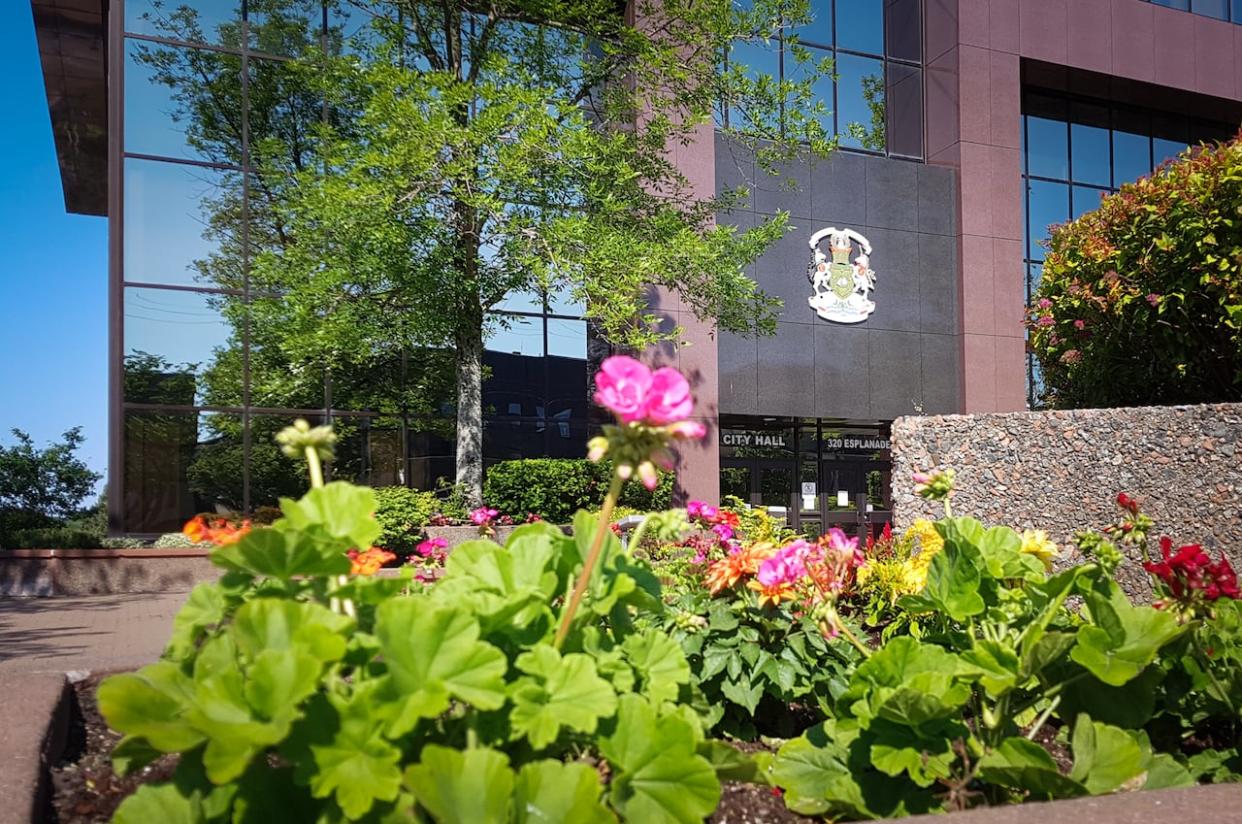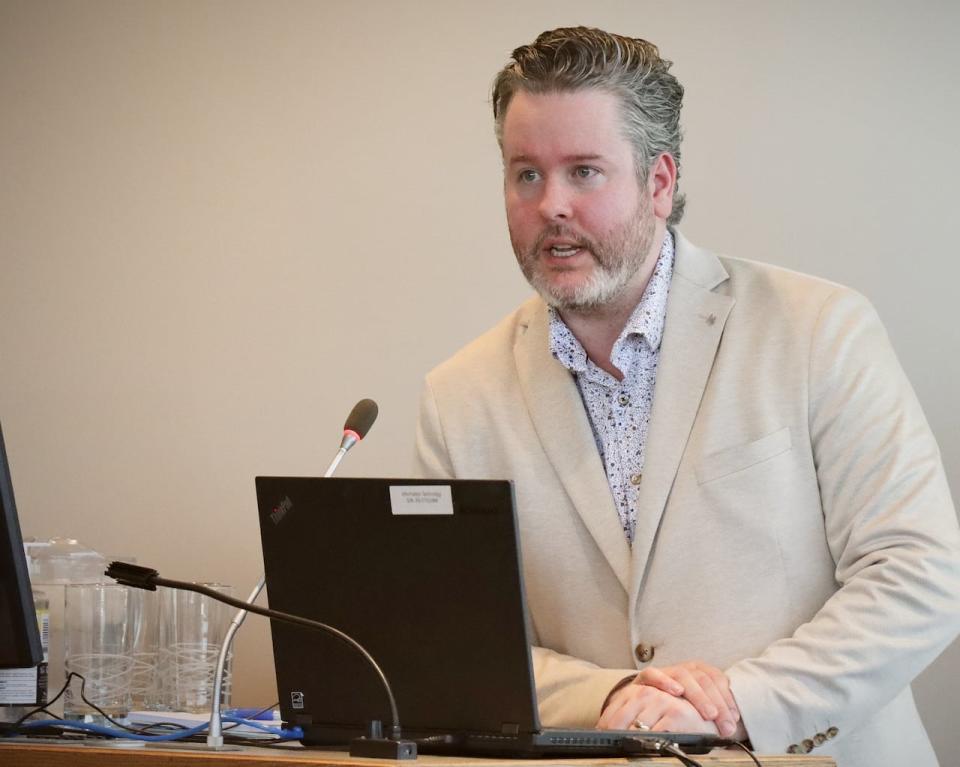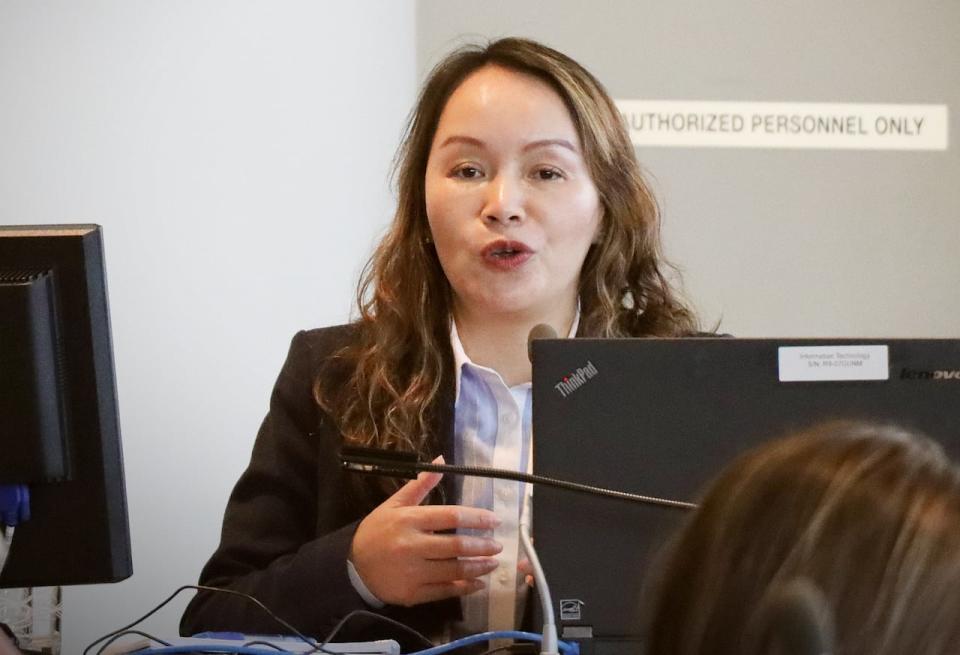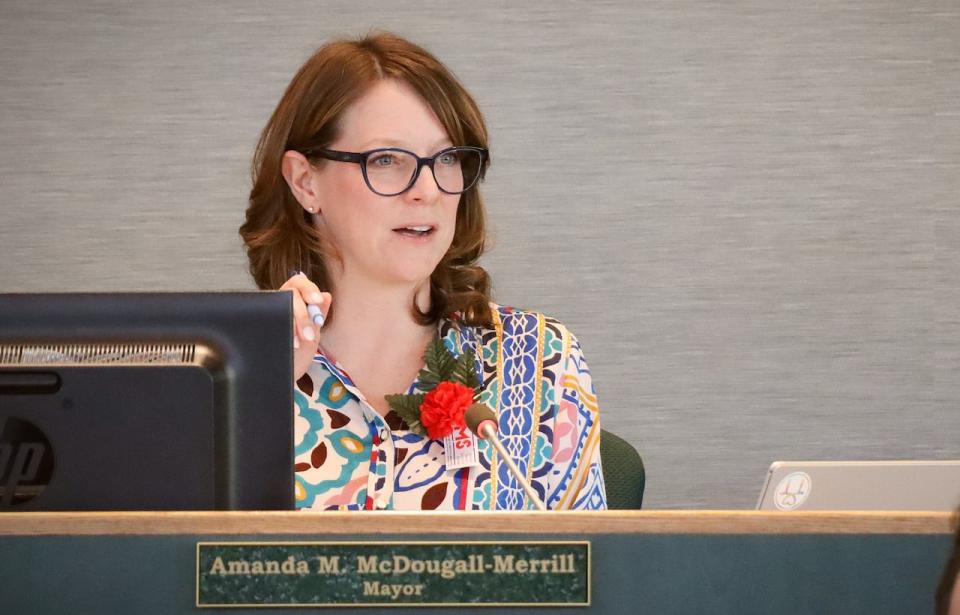CBRM company expects 'fierce competition' to build solar-power gardens under new program

Cape Breton Regional Municipality may soon be home to several large solar-panel gardens, thanks to Nova Scotia's newly announced community solar program.
TriMac Engineering of Sydney has partnered with Ontario developer SolarBank to develop a 10-megawatt solar garden in the rural community of Enon, which is near Loch Lomond toward the border with Richmond County, and a seven-megawatt project near the Mayflower Mall in Sydney.
Joel MacNeil, a principal with TriMac, said the provincial program is attracting attention from the business community.
"We're not exactly sure of the competition out there for community solar, but we think it is going to be fierce competition," he told CBRM council Tuesday.
CBRM staff said there is at least one other company working on a proposal and more may be on the way.
Under the program, which was announced March 1, developers build a solar garden and sell the electricity to Nova Scotia Power.

TriMac Engineering principal Joel MacNeil says two proposed solar projects for CBRM could power up to 2,200 homes and provide discounted electricity bills for subscribers. (Tom Ayers/CBC)
That helps the utility green the grid and helps pay for the infrastructure.
At the same time, ratepayers who cannot install their own solar panels can subscribe at no cost and buy the power at a discount, receiving a credit of two cents per kilowatt hour on their bill.
MacNeil said the Loch Lomond project proposed by SolarBank and TriMac could power 1,300 average homes in Nova Scotia, or enough to make all of the homes around the rural Loch Lomond area net zero.
The seven-megawatt project could power up to 900 homes.
TriMac and SolarBank are currently planning to build the projects without any government money and expect to apply for approval from the province by June.
If approved, they could be under construction by next year, MacNeil said.
He and SolarBank chief development officer Tracy Zheng said public input is being gathered in both communities. While residents around Enon are on board, the Sydney project needs more work to satisfy area residents' concerns about setbacks from existing homes and access to Grand Lake Road.
He said the companies are considering several other possible locations, as well.

SolarBank chief development officer Tracy Zheng says developers are proposing fixed solar panels because motorized ones that track the sun don't work in snow and ice. (Tom Ayers/CBC)
Zheng said some people were concerned about the potential for noise if the panels are motorized to track the sun as its position changes through the day.
But she said they are only proposing fixed panels because snow and ice can interfere with motorized tracking.
Mayor Amanda McDougall said under the provincial program, developers have to enlist municipal support.
"I think that's a great idea," she said. "It keeps us all in the loop of what's happening in the community, and I foresee more of these presentations coming to council."

Mayor Amanda McDougall says solar gardens represent good development because they don't bother neighbours and add to the availability of renewable energy. (Tom Ayers/CBC)
Council unanimously supported the two projects. McDougall said it's a good deal for everyone.
"This is good development. It's clean development. It's quiet. It's nothing that is obtrusive to your community and at the end of the day, it provides relief to residents potentially who want to participate in these projects."
MORE TOP STORIES

